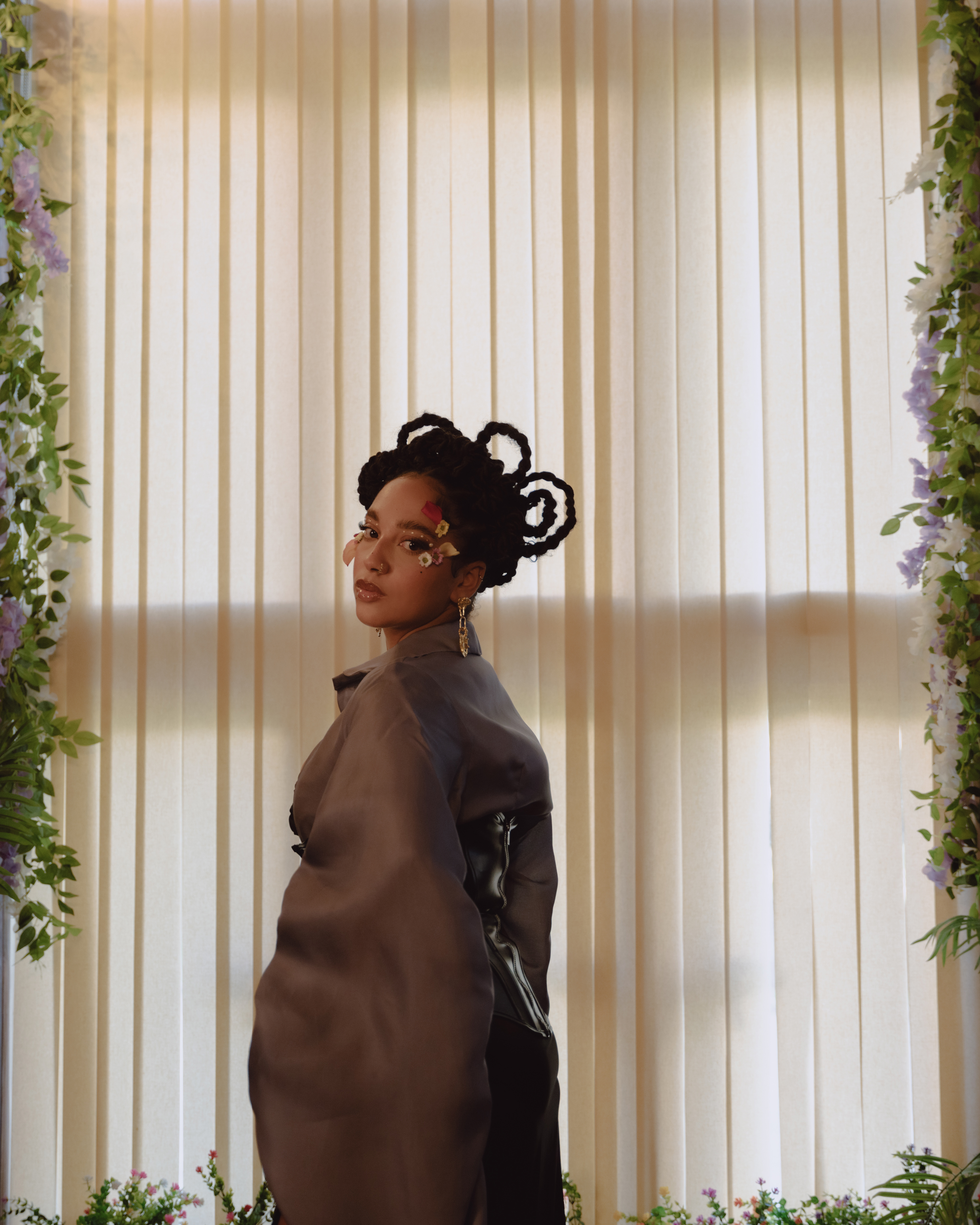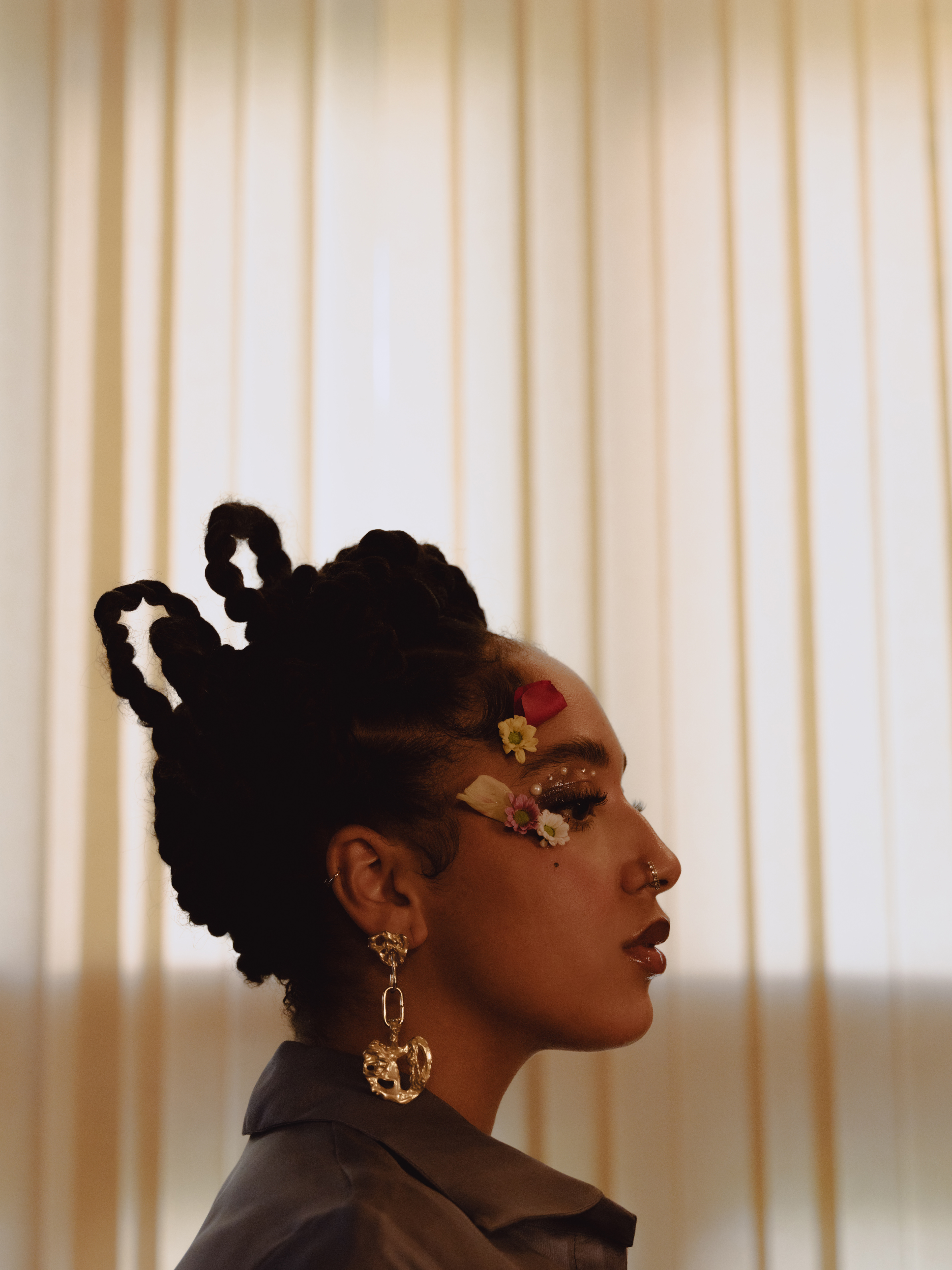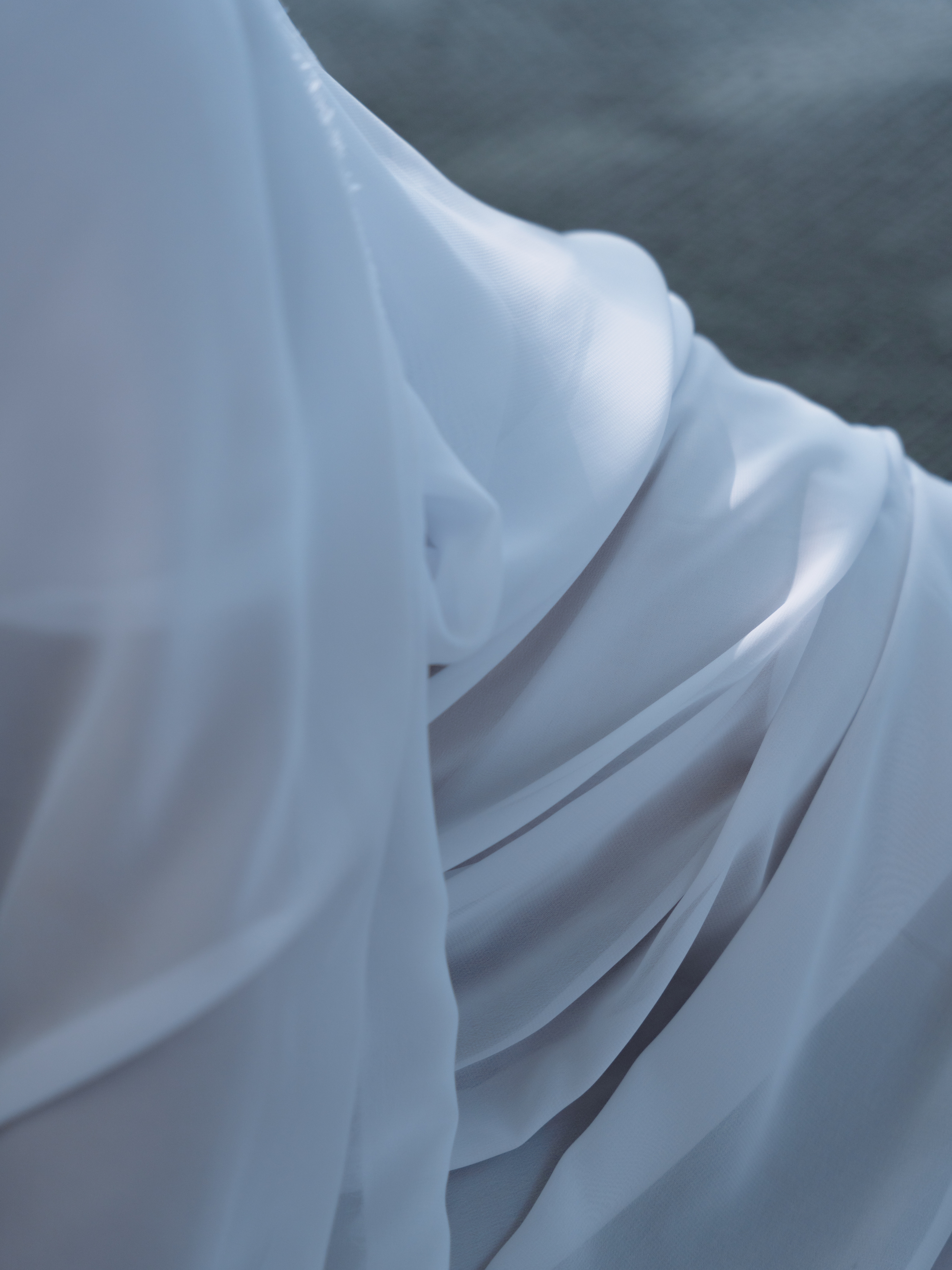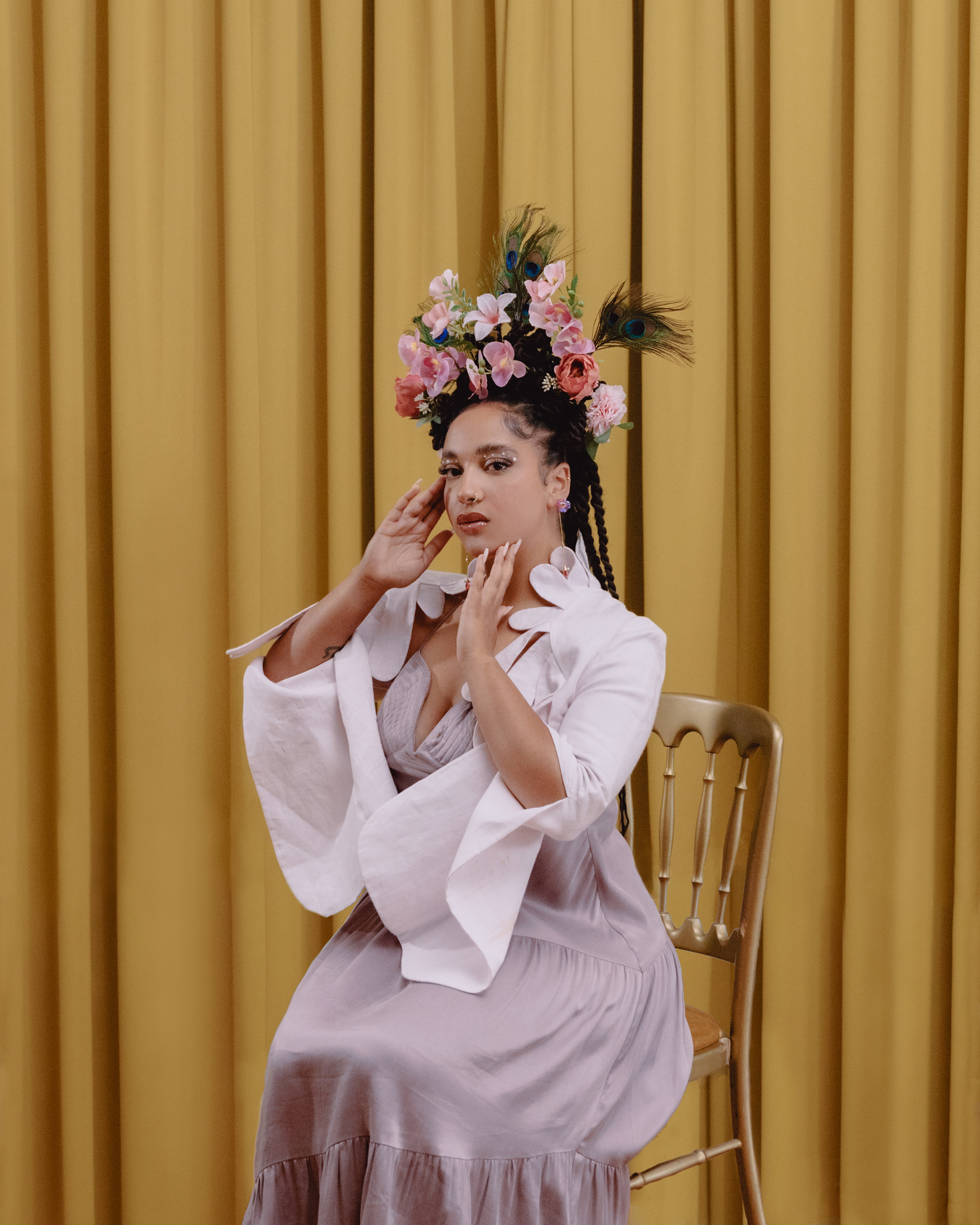DE: Of the genres that you mentioned, is there a standout song for you? A song that - when you hear it, it just takes you back to that moment as a child, it feels very peaceful, warm or even, just makes you feel happy, because it’s an upbeat song. You can name more than one if you want.
Y: Yes! Premier Gaou by Magic System is a very traditional Ivorian song. People were trying to say it was Congolese, but it’s not, it’s Ivorian. Then, loads of old school reggae songs, loads of Bob Marley always reminds me of growing up in my house. My mum used to listen to punk as well. All of these genres really remind me of growing up.
DE: That’s a great selection. I love Premier Gaou, it reminds me a lot of my childhood too. How would you describe your fashion sense as a child? How did growing up in South London, the cultural diversity and the fashion in the area impact you and what items of clothing, shoes, jewellery and accessories were distinctive part of your style?
Y: Omg. Everyone used to think I would dress really weird. I think that was because I used to mix [different styles together]. My dad would wear traditional African clothes, mixed with Rastafarian mixed with streetwear. He’d wear a tracksuit, with an African top and trainers and then his Rasta hat. He’s just always been very mixed up and my mum's quite hippie, with lots of colours. So, I would wear the traditional South London attire, which is like a slicked bun, big hoops, ‘Just Do It’ bag, leggings and a crop top. I’d always mix things in, I was also really into vintage stuff, hippie stuff - sometimes I’d mix my crop top with harem pants, with Air Max trainers and big feather earrings. It was just a mix of everything and I’m still quite like that now. It depends on the day, I think mixing and matching is fun.
DE: That’s super insightful. As a teenager, I loved hoop earrings (still do) and white Nike AF1’s growing up, I used to change the laces into multi-coloured ones (I would dye them sometimes) and even write my name on the AF1’s too, it was a crazy time haha. While I was studying journalism at university, fashion was quite revolutionary for me. I would rock up to lectures in my camo pants, AF1’s and hoop earrings. It was important to me to be everything that I am and not conform to my environment. Thinking back to the wind rush generation and the importance of fashion as a statement and activism in itself. Would you say that fashion has been a statement for you, of showing who you are?
Y: Yeah, I think being mixed heritage as well, when you're from two different cultures and you're from a culture in London, where there's so many different cultures. I was so proud of that. I was so lucky to be able to express that side of myself and every part of me. I didn't feel afraid to do that and I feel so blessed for that.
Even if somebody was like, “oh you dress a bit weird”. It was never deep like that, you know. I do feel so blessed to be brought up somewhere that I could really truly be myself. I never felt like I had to change who I was. Obviously there's societal things and being mixed, I may not have it as difficult as people that are fully black and those pressures are obviously still there. I think where I’m from, you were allowed to be who you are, which I’m so blessed for, just because there's so much of that like rich Caribbean and African influence in South London.




